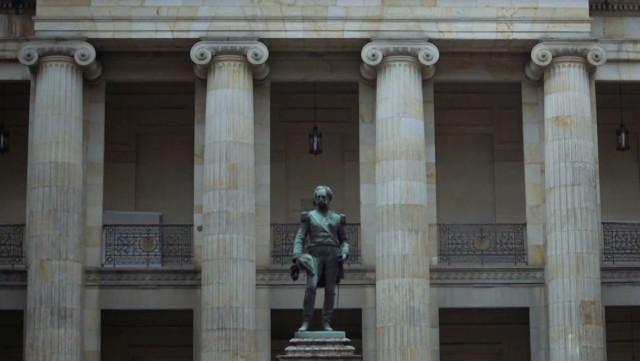In the late 1980s, Colombia was reeling from violence, corruption and terrorism — all from insurgent groups and drug traffickers. A student-led movement called “We can still save Colombia” fought back.
It’s biggest demand? A Constitutional Assembly to replace the constitution written 100 years earlier. Colombian Senator, Claudia Lopez, explained “It was a way for the people to say, ‘if Congress can’t do it, let’s forget about Congress and elect a new democratically elected organization such as the Constitutional Assembly that will have the power to pass the reforms that Congress and the government hasn’t been willing to do.” CGTN’s Michelle Begue reports.
Lopez, was 18 at the time. She recalls how the Colombian government resisted calls for a new constitution. Students responded, calling for citizens to vote in the March 1990 legislative elections.
The Septima Papeleta campaign asked voters to deposit an extra ‘Seventh Ballot’ that called for a Constitutional Assembly. The unofficial count—more than 2.2 million votes in favor of it. “All that pressure forced the government to decide ‘yes,’ this seems to be the only way out. We need to find a legal way to request a Constitutional Assembly,” added Lopez.
By the end of 1990 the Colombian people had elected a National Assembly. It was tasked with writing a new Constitution in 150 days. And they did. The new Constitution was ratified in 1991. It was considered a progressive document… defining a citizen’s basic rights to health and education.
Colombian Senator Antonio Navarro Wolff said, “I was Minister of Health before the Constitution of ‘91 existed and only 37 percent of Colombians had some type of health care. Now 96 percent of Colombians have health, thanks to that declaration of rights.”
Wolff – a former M-19 guerilla – was co-president of the National Assembly that drafted the new Constitution. He said the Constitution’s greatest gift to the people was a way to formally protest when their rights are violated.
Former M-19 guerrilla member Antonio Navarro Wolff
Senator and former M-19 guerrilla member Antonio Navarro Wolff talks about the moment he was signing the new constitution which he helped write.
“They even have the rights to go in front of a judge to have them make sure their rights are respected. In five days the judge has to issue a decision to make sure rights are being guaranteed,” he added.
Today, Claudia Lopez is leading a similar movement to pass anti-corruption laws. She says the ‘Seventh Ballot’ victory has been her inspiration throughout her campaign.
“So, 25 years later I am in the same situation. I am in a political system that has been de-legitimized…marked by corruption, and a Congress that doesn’t want to pass needed reforms. But, now I have a tool called popular consult that is in the Constitution since ’91…that has never been used. So, I am saying let’s use it. This is the last tool we have left,” said Lopez.
Showing that when Colombians want change, they can achieve it… without guns.
 CGTN America
CGTN America

